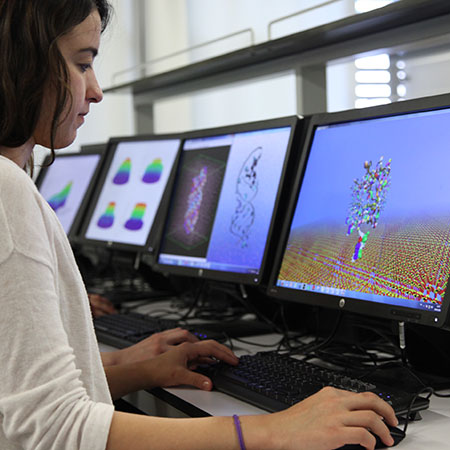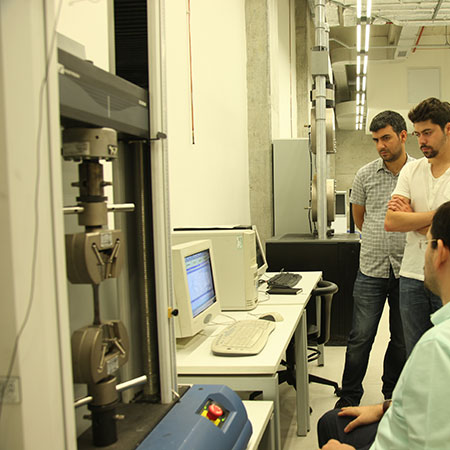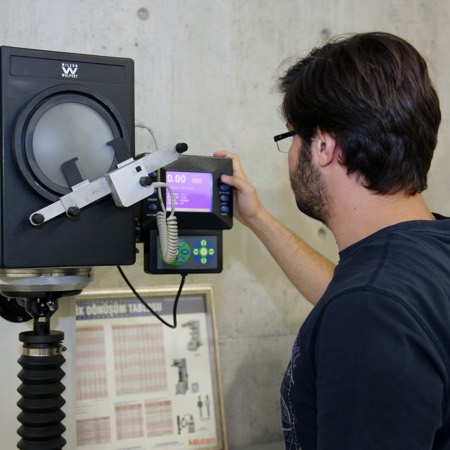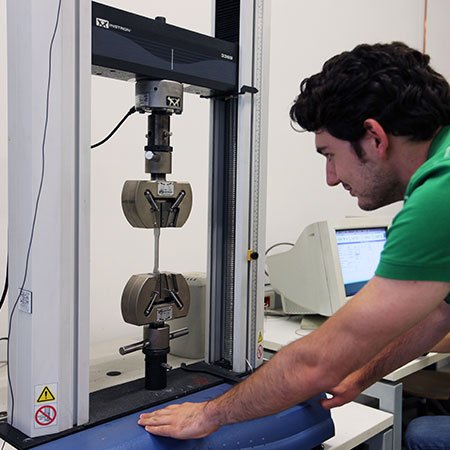| Course Code |
Course Name |
Credit |
Prerequisites |
| END 404 |
Systems Engineering |
3 |
- |
| Definition of systems approach. Analysis of sub-system and super-system relations. Analysis of feedback networks. Searching for the best solution of the whole system. Dynamic programming. Queueing models. Markov processes and simulation methods. |
| END 411 |
Supply Chain Management |
3 |
- |
| Management of material, information and financial flows. Supply chain strategy and performance evaluation. Network design and distribution channels in supply chain. Inventory management in supply chains. Value and importance of information in supply chains. Contracts and integration in supply chains. Procurement and outsourcing strategies in the supply chain. |
| END 412 |
Engineering and Technology Management |
3 |
- |
| Basic concepts of technology management; technology selection on a project basis, technology transfer paths (license agreements, foreign direct investment, etc.), industrial property rights (patent, utility model, industrial design, etc.), technology production and R&D studies, Technoparks, country experiences, science and technology policies. |
| END 414 |
Total Quality Management |
3 |
- |
| Total quality management (TQM) principles and general quality information, quality organization, customer focus. Problem solving process and tools, self-assessment and quality models, quality in service businesses, strategic management, process management, teamwork and its types, motivation and leadership, FMEA (Failure Type and Effects Analysis) and benchmarking. Quality improvement. Statistical quality control. Quality awards. |
| END 416 |
Human Resources Management |
3 |
- |
| Human resource planning and development, organizational environment and personnel services provision. Performance evaluation and follow-up. Performance based compensation systems. |
| END 418 |
Project Management |
3 |
- |
| Introduction to project management. Project life cycle. Project management processes and organizational forms. Project initiation and project needs. Project plan and work breakdown tree. Risk management in the project. Cost estimation in the project. Project scheduling and resource allocation. Project execution, team structure and human dimension. Project monitoring and control, earned value management. Change management in the project. Closing the project. Application on computer of project management. |
| END 419 |
Time Series and Forecasting |
3 |
- |
| Forecasting methods. Time series. Trend determination, smoothing methods, moving averages method, least squares method. Autocorrelation function, autoregressive models, seasonal autoregressive moving average methods. Estimation of model parameters. Unit rooted series. Stabilization techniques. Price indexes. |
| END 422 |
Feasibility Analysis |
3 |
- |
| Origin of investment idea and investment types. The benefits and necessity of feasibility studies. Establishment location selection. Demand forecast. Capacity determination. Determination of the investment amount. Financing of investment. Pricing. Marketing techniques. Income-expense study. Evaluation of the project. |
| END 423 |
Decision Analysis |
3 |
- |
| Introduction to decision analysis. Structuring decisions. Decision making. Decision making under uncertainty. Decision making under risk. Utility theory. Sensitivity analysis. Multi criteria decision making. Game theory. Decision making applications. |
| END 425 |
Inventory Management |
3 |
- |
| Multi-product inventory control systems. Advanced traveling salesman inventory control models. Two- and multi-level inventory control models. Perishable inventory control. Inventory pricing models. |
| END 426 |
Logistics |
3 |
- |
| Approaching logistics problems from an operations research perspective. Introducing numerical models used in the analysis of logistics problems and presenting precise and intuitive solution methods for selected models. Analysis of location problems. Logistics network design. Long and short distance freight transportation planning. Traveling salesman problems. Vehicle and edge routing problems. |
| END 427 |
Flexible Manufacturing Systems |
3 |
- |
| Definition of flexibility in terms of manufacturing and the need for Flexible Manufacturing Systems (EMS). Group technology and flexible manufacturing cells. Coding systems. EMS planning and layout. Material handling systems. Automated guided vehicle systems, automated storage and recall systems, and computerized control systems. EIS implementation, advantages-disadvantages and problems that arise during its implementation. Computer aided process planning and quality control. |
| END 428 |
Scheduling |
3 |
- |
| Scheduling theory and applications. Model properties and solutions. Deterministic and random scheduling models. General purpose solution approaches (integer optimization, branch and bound algorithms, dynamic programming, computational complexity and heuristics) for scheduling problems in single-machine, parallel-machine and multi-machine systems. Scheduling in flexible manufacturing systems, scheduling in service systems, project scheduling. |
| END 429 |
Energy Systems Planning |
3 |
- |
| Energy demand forecasting models. Primary energy sources. Planning of production, cycle and distribution investments. Regional and national models and optimization of energy supply systems. Scenario analysis. |
| END 432 |
Investment Management |
3 |
- |
| Analysis of industrial projects. Project evaluation techniques. Technological feasibility, economic and financial feasibility. Capital budgeting models. Portfolio models. Uncertainty and risk analysis. Case studies. |
| END 433 |
System Reliability and Maintenance Planning |
3 |
- |
| Introduction to reliability engineering. Hazard and reliability functions. Reliability estimation and modelling. Creation of error trees and decision tables. Reliability improvement, maintenance organization and strategy. Maintenance work forecasting, maintenance capacity planning and scheduling. Parts replacement decision models, maintenance measurement and standards. |
| END 435 |
Quality in Design |
3 |
- |
| The definition of quality, how quality is created in design. Purpose and requirements of pre-production quality control. Pre-production quality control methods. Establishment of quality in design. Quality function diffusion and Taguchi method. Reflecting customer requirements and requests to the design and customer satisfaction. Parameter and tolerance design. |
| END 436 |
Special Topics in Industrial Engineering |
3 |
- |
| END 437 |
Special Topics in Operations Research |
3 |
- |
| END 498 |
Independent Research Study |
3 |
- |
| This course involves students working one-on-one with a faculty member on a specific topic for a semester. The student summarizes the research results in a report. |








